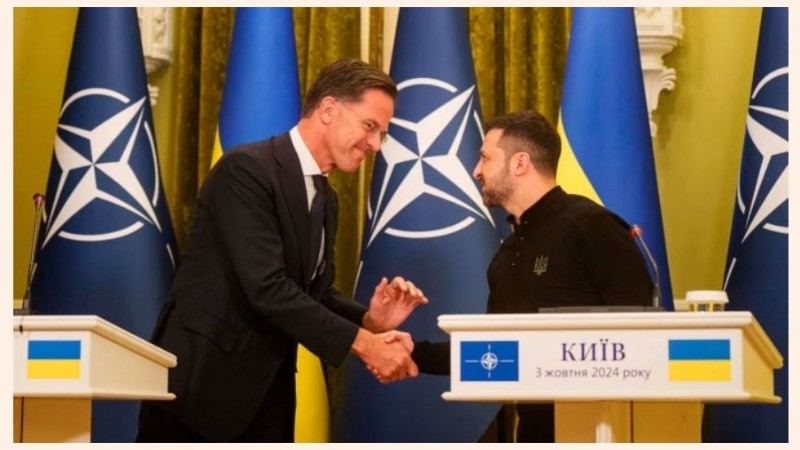
Ukrainian President Volodymyr Zelenskyy has outlined a plan to bring peace to his country by next year, but a key element is causing hesitation among crucial Western allies: Ukraine's NATO membership before the end of the war with Russia.
In a speech to Ukraine's parliament, Zelenskyy said, "If we start moving according to this victory plan now, it may be possible to end the war no later than next year." However, this ambitious plan includes joining NATO, a step some Western partners are reluctant to support while the conflict continues.
The central point of Zelenskyy’s five-step victory plan is Ukraine’s immediate inclusion into NATO. He said that granting Ukraine membership would be a strong demonstration of allies' commitment to support Ukraine. NATO's Article 5, which guarantees collective security, ensures that all member nations would come to the aid of a fellow member under attack. This provision has caused hesitation among NATO members, particularly the U.S. and Germany, who fear being drawn into a broader conflict with Russia.
At NATO's July summit in Washington, the 32 members confirmed Ukraine's "irreversible" path to membership, though a decision to initiate talks might not come until the next summit in June in the Netherlands.
Ukraine continues to face intense military pressure from Russia, especially in the eastern Donetsk region. Russia’s steady advances, though incremental, have raised Ukraine’s urgent need for more significant Western military aid.
However, signs indicate that Western support may be faltering. Growing attention to conflicts in the Middle East and domestic political issues are drawing focus away from Ukraine. The upcoming U.S. elections could also shift Ukraine's fortunes, as the U.S. has been its largest military supporter.
Zelenskyy acknowledged that in private conversations, Western allies are increasingly discussing "negotiations" with Russia, while the concept of "justice" in the context of the war is mentioned less frequently. He also raised concerns about North Korea sending military personnel to assist Russia, with support from Iran and China.
The full details of Zelenskyy's victory plan remain confidential. However, the plan includes continuing strikes on Russian territory, including the Kursk border region, which has been a target since August, as well as more long-range drone attacks on Russian infrastructure. Additionally, Zelenskyy emphasized the need for more air defense systems and broader intelligence support from allies.
Zelenskyy also highlighted Ukraine's wealth of natural resources, including metals such as uranium, titanium, and lithium, which he said could be valuable assets in postwar reconstruction and shared with international partners. He pointed out that these resources, as well as Ukraine’s agricultural production, are among Russia’s key objectives in the war.
In the postwar period, Zelenskyy said that Ukraine’s battle-hardened troops would be a valuable asset for NATO in its efforts to counter Russia.
Zelenskyy Meets UK and NATO Leaders, Seeks Backing for Ukraine’s Victory Plan
Russia Maintains Emergency Hotlines with US and NATO Amid Rising Nuclear Tensions
Mark Rutte Takes Over as NATO Chief Amid Major Global Challenges